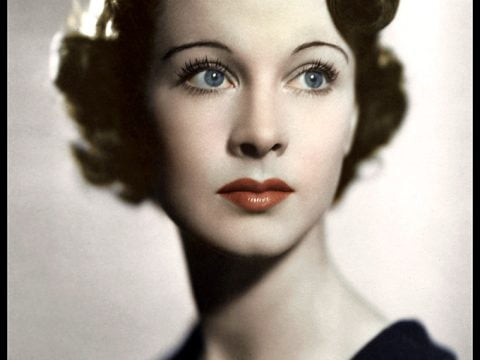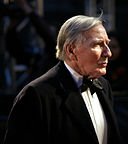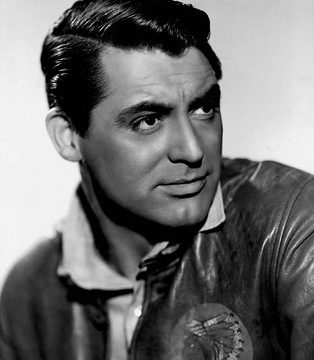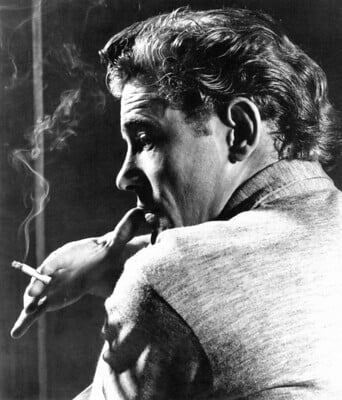
Early Life
Peter (Seamus) O’Toole was born at St James’s University Hospital in Leeds, England on 2 August 1932. His Irish-born father Patrick Joseph O’Toole, was a metalworker, footballer, and later, a bookmaker. His mother, Constance Jane, was a Scottish nurse. He grew up in the Leeds suburb of Hunslet, along with his older sister Patricia.
After leaving school, O’Toole began work as a trainee journalist for the Yorkshire Evening Post. However, his journalistic career was interrupted when he was called up for national service. He went on to serve two years in the Royal Navy as a signalman. After demob in 1952, O’Toole decided to pursue an acting career. He went on to attend the Royal Academy of Dramatic Art (RADA) in London and graduated in 1955.
Early Career
After leaving RADA, O’Toole found work at Bristol’s Old Vic. He stayed 3 years, making his London stage debut in George Bernard Shaw’s Major Barbara (1956). Within a few years, he won recognition as a highly acclaimed Shakespearian actor. He made his film debut in an adaptation of Robert Louis Stevenson’s Kidnapped (1960). Just two years later and in only his fourth film, O’Toole rose to international stardom after starring in David Lean’s Lawrence of Arabia (1962). He was nominated for an Oscar but lost out to Gregory Peck in To Kill a Mocking Bird. Nonetheless, the big-screen epic is widely regarded as one of the greatest films of all time.
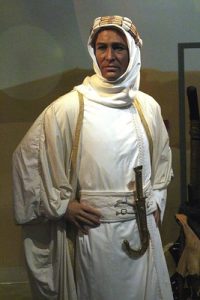
Peter O’Toole as Lawrence of Arabia (1962) Image credit: Creative Commons (CC by 2.0)
O’Toole next played Henry II in Becket (1964) to great plaudit. However, his sixth film, Lord Jim (1965), in which he played the title role, was much less received. His other notable films of the ‘60s include; What’s New, Pussycat (1965), How to Steal a Million (1966), The Night of the Generals (1967), and the musical Goodbye, Mr. Chips (1969). He also starred as Henry II for a second time in the highly acclaimed The Lion in Winter (1968), co-starring Katharine Hepburn. His performance earned him an Oscar nomination and a Golden Globe award.
In 1972, O’Toole gave another memorable performance in the black comedy The Ruling Class. The film, adopt from the play of the same name, saw him portray a schizophrenic English Earl with a messiah complex. However, personal and health problems were to follow, which saw a decline in his popularity during the rest of the decade. However, he eventually overcame his challenges and made a strong comeback in the early ‘80s. Subsequently, he won much acclaim for The Stunt Man (1980), the television miniseries Masada (1981), and My Favourite Year (1982).
Later Career
Some of O’Toole’s later notable performances came in such films as The Last Emperor (1987), Wings of Fame (1989), and Fairy Tale: A True Story (1997). Some of his best television work of the 1990s includes The Dark Angel (1991) Gulliver’s Travels (1996) Joan of Arc (1999). He also had much-acclaimed stage success around the same time, particularly in Pygmalion (1987) and Jeffrey Bernard is Unwell (1989). He also produced and starred in a 1999 TV adaptation of the latter. Noted big screen performances of the new millennium include that of King Priam in the historical epic Troy (2004), an aging romantic in Venus (2006), a voiced role in the animated film Ratatouille (2007), and that of a priest in the historical drama For Greater Glory (2012).
In all, O’Toole appeared in 63 films, having either a starring role or a major supporting part in almost all. The last two films in which he appeared; Decline of an Empire (2014) and Diamond Cartel (2017), were released posthumously. He received a total of eight Oscar nominations during his 40-year film career, without ever winning the coveted award. He jointly holds the industry’s most unwanted record along with the American actress Glenn Close. However, in 2003, he did receive an honorary Oscar to add to his three Golden Globes.
Personal Life
In 1959, O’Toole married the Welsh actress Siân Phillips. They had two daughters together, Kate and Patricia. The couple divorced in 1979 after Phillips left him for a younger lover. She later wrote in her two autobiographies that O’Toole’s excessive drinking was largely the reason that led to divorce. In 1983, O’Toole, married his girlfriend, model Karen Brown. She gave birth to their son, Lorcan, the same year. However, perhaps somewhat predictably, the marriage was relatively short-lived.
O’Toole shared a reputation as one of the hard-drinking hell-raising British actors of the 1960s. His own particular close cohort of infamous drinking pals was Richard Burton, Oliver Reed and Richard Harris. He was a keen rugby enthusiast and often attended international games, along with his fellow acting buddies. Also a football fan, he was often referred to as Sunderland AFC’s most famous supporter. However, it was cricket that was his greatest sporting passion. An avid follower of the game, he also played and coached through much of his life.
In 1963, O’Toole moved from the UK to Clifden, Connemara, County Galway. Later, he also maintained homes in Dublin, London and Paris.
O’Toole wrote two memoirs; Loitering With Intent: The Child (1992) which chronicles his early life and Loitering With Intent: The Apprentice (1995) which recounts his time at RADA.
Illness and Death
In the mid-1970s, O’Toole suffered serious health problems. His ill health was attributed to excessive drinking but he was eventually diagnosed with stomach cancer. He underwent major surgery and gave up alcohol to make an eventual return to acting in 1980. He gave up his acting career in 2012 when he was diagnosed with a recurrence of stomach cancer.
Peter O’Toole died on 14 December 2013, aged 81, at Wellington Hospital in St John’s Wood, London. He was cremated at Golders Green Crematorium, London a week later. In accordance with his wishes, his ashes were scattered in the west of Ireland.
Header image credit: Creative Commons/(CC by 2.0)
